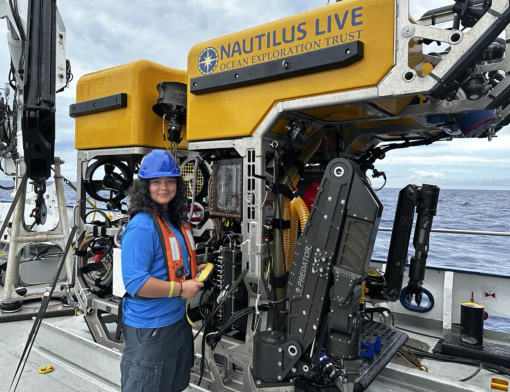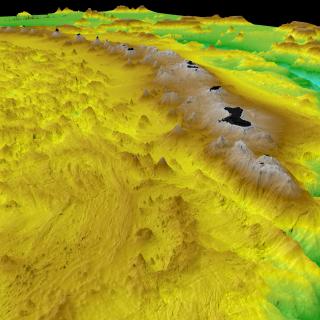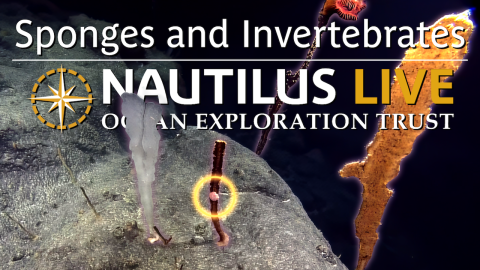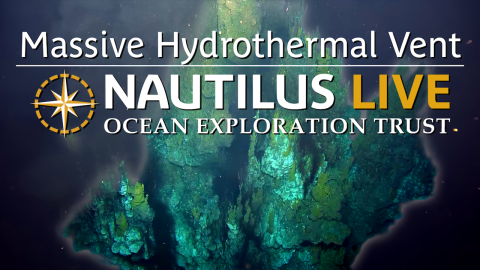Meet Ocean Explorer Mackenzie Hillburn

OET proudly welcomes Mackenzie Hillburn to the Corps of Exploration as part of the Science & Engineering Internship Program. This internship program supports community college, undergraduate, and graduate students in building professional workforce experience and exploring STEAM-related careers that connect to research themes like robotics, ocean science, education, and exploration. Mackenzie is joining E/V Nautilus for our NA171 expedition as an ROV engineering intern.
We sat with Mackenzie to learn more about her experience at sea and the path that led her to Nautilus.
Describe your role with OET.
I am aboard the EV Nautilus as the ROV intern for the NA171 expedition in the Mariana islands! My role is primarily to pilot the ROV Atalanta, which means that I control the massive winch tethering both the Atalanta and the ROV Hercules to the ship. The Hercules pilot counts on me to maintain a steady heading and tether payout between the two ROVs so that the Hercules is free to roam, collect samples, and observe the sea floor. I also help with ROV maintenance between dives.
Can you tell us a little about your background? What influenced you as a child?
My current background is in aerospace engineering. When I was younger I imagined myself designing robots to explore distant alien planets and spaceships that would be launched into black holes! The exploration aspect has always been what called to me the most. Following
the work that OET and the Nautilus have been doing, and realizing just how much there still is to be discovered about our own planet, was very exciting.
When you were a kid, what did you want to be when you grew up?
Engineering has always been my greatest interest. I used to get in trouble for taking apart things like wall clocks and solar powered window decorations to decipher how their inner workings – although to be fair, I would only get in trouble when I got distracted before I could put them back together, and left them in pieces! As a kid I wanted to know how things worked so that I could build everything from robots to castles to motorcycles, and that hasn’t changed much over time.
What would you consider to be your greatest challenge entering this field?
Deep sea engineering is a bit of a niche field, and entry level positions are very competitive. Even with a variety of experiences on my resume, I have had a hard time getting my foot in the door. Something that I have had to come to terms with is that my path won’t be anywhere near as straightforward as I had imagined when I was younger – which just means that it is up to me to make wherever I end up worthwhile.
Do you have any advice for someone looking to follow a similar path?
In my experience it’s best to start small and go after the experiences that align with your interests. Join clubs and organizations, take classes, participate in scientific outreach. Just get out there and do things, and be willing to learn from everything you do. One of my academic advisors used to say: “Success is ten percent luck, thirty percent skill, and sixty percent concentrated power of will”. He stole that from an Eminem song, but I still think it’s good advice!
What's next for your ocean studies and career?
I am hoping to keep gaining experience in marine engineering, either from a job at a robotics company or through a master’s degree. Having participated in NA171, I can confidently say that I would love to join similar expeditions at sea in the future, should the opportunity arise!

Mattingan: Mariana Arc Volcanic Exploration
E/V Nautilus will begin the 2025 season exploring the ocean of the Mariana Islands- one of the most tectonically and volcanically dynamic locations on the planet. This area is home to one of the most active arc volcanic systems on Earth with more than 60 submarine volcanoes, and a back-arc spreading center where new seafloor is created.



